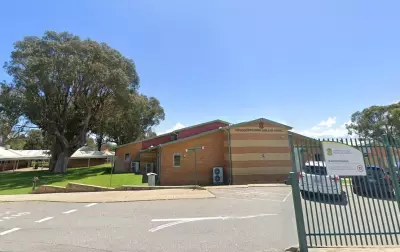
Australia's national science agency has revealed plans to eliminate up to 350 positions next year, with environmental research bearing the heaviest burden of the staff reductions.
Environmental Research Unit Hit Hardest
The Commonwealth Scientific and Industrial Research Organisation confirmed to The Canberra Times that between 130 and 150 full-time equivalent roles will be cut from its environmental research unit, representing approximately one in five staff members in that division.
This unit conducts critical research on climate change, pollution management, and sustainable resource use. The cuts form part of a broader restructuring that will see up to 350 positions eliminated across the organization in 2025.
Political Backlash and Concerns
The announcement has drawn sharp criticism from crossbench and Greens politicians, who argue the decision undermines Australia's capacity to address pressing environmental challenges.
Greens science spokesperson Peter Whish-Wilson expressed deep concern that the cuts would "disproportionately impact public good science." He emphasized that scientists at CSIRO have faced increasing pressure to generate revenue, even for research with significant public benefits like climate and environmental studies.
ACT Independent Senator David Pocock questioned the timing and rationale behind targeting environmental research. "I don't understand how anyone in 2025 can argue that the environment is not a national science priority," Senator Pocock stated.
Strategic Shift Toward Revenue Generation
Internal communications seen by The Canberra Times indicate staff have been told the restructuring represents a strategic shift toward supporting technology, mining, agriculture, and manufacturing sectors.
One employee expressed dismay in an email to Senator Pocock, noting: "Apparently we are now focusing on money generation... To cut the little we do to invest specifically to environmental programs is shocking."
A CSIRO spokesperson defended the changes, stating the agency is "exiting research where we lack scale to achieve significant impact, or areas where others in the sector are better placed to deliver."
The environment research unit will reshape its portfolio to "focus on better integrating our science across disciplines to more effectively address critical national challenges and deliver maximum science impact within available funding."
Funding Context and Government Response
The job cuts come despite revelations that the Albanese government is preparing to inject more than $100 million in additional funding for CSIRO in its mid-year budget update next month.
Analysis of budget data shows CSIRO's Commonwealth funding fell 7 percent in real terms during the first two financial years of the current government. The agency receives approximately $1 billion annually in base government funding while also generating its own revenue.
Science Minister Tim Ayres, who last month issued a statement of expectations directing CSIRO to shift its priorities, commented that "every program comes to an end at some point."
A spokesperson for Minister Ayres emphasized that CSIRO had made "strategic choices to evolve its research... independently of government" and that no research program was being "singled out."
The CSIRO indicated it requires between $80 million and $135 million per annum over the next decade for essential infrastructure and technology investments to remain sustainable.
The agency stated it remains committed to "maintaining national leadership in freshwater, marine, climate and adaptation science, and social sciences" despite the restructuring. The environmental research unit will remain one of CSIRO's largest divisions even after the cuts take effect next year.





